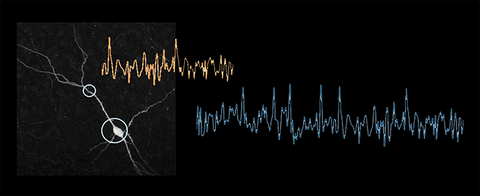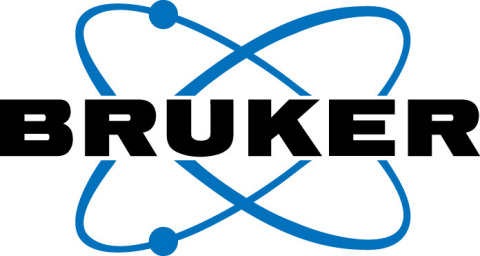Bruker Introduces Innovative Neuroscience Research Solution with High-Speed OptoVolt Voltage Imaging
Bruker Introduces Innovative Neuroscience Research Solution with High-Speed OptoVolt Voltage Imaging
New Multiphoton Microscopy Module Enables Millisecond Neural Event Imaging at Single Neuron Resolution
CHICAGO--(BUSINESS WIRE)--At the Neuroscience 2024 conference, Bruker Corporation (Nasdaq: BRKR) today announced the release of the OptoVolt™ module to further expand the advanced neuroscience research capabilities on Bruker’s Ultima multiphoton microscope platform. OptoVolt accelerates imaging speeds to beyond 1000 frames per second for the capture of millisecond dynamics of cell-to-cell neural communication. With the emergence of fluorescent voltage indicators, researchers are excited to measure neural activity with higher temporal resolution than traditional fluorescent calcium indicators have allowed.
The OptoVolt module uniquely addresses the challenges of voltage imaging by providing a scanner technology that is capable of operating at the ultrafast speeds and with the signal-to-noise ratio required to detect individual neural events. Furthermore, when combined with Bruker’s NeuraLight 3D Ultra® spatial light modulator (SLM) for 3D optogenetic activation, the entire platform enables researchers to probe input-output relationships of neural ensembles at unprecedented temporal and spatial resolutions.
“I see voltage imaging becoming a key tool in the investigation of neural circuits and systems neuroscience in the near future,” said Professor Thomas Clandinin, Department of Neurobiology at Stanford University. “We are excited about new instrumentation that expands the possibilities for optically interrogating cellular and sub-cellular signaling at the temporal resolution of individual action potentials.”
“We are proud to introduce this significant advancement in neural circuit imaging capabilities, with its combined unparalleled imaging speed and signal-to-noise performance that allows millisecond neural event detection at single neuron resolution,” added Xiaomei Li, Ph.D., Vice President and General Manager of Bruker’s Fluorescence Microscopy Business. “OptoVolt demonstrates how we pay attention to our customers’ evolving research needs and work closely with them to drive innovation. With such direct collaboration, we are able to build upon the versatile Ultima 2Pplus platform as the ideal solution for all-optical neuroscience research.”
About the OptoVolt Module
The OptoVolt module, integrates seamlessly with the Ultima 2Pplus multiphoton microscope to provide kilohertz-level imaging speeds, capturing dynamics at up to 1000 frames per second. OptoVolt technology leverages novel voltage indicator proteins, such as ASAP4 from Stanford University and JEDI-2P from Baylor University, ensuring compatibility with the latest developments in the field. The system's modular design retains the depth and resolution of traditional two-photon imaging, while enabling flexible adjustments between speed and signal intensity. Additionally, OptoVolt’s integration with the NeuraLight 3D Ultra SLM allows for simultaneous optogenetic manipulation and voltage imaging, facilitating comprehensive functional mapping of neural circuits. This capability allows researchers to visualize action potentials and sub-threshold membrane potentials across large neural networks, bridging the gap between single-cell electrophysiology and wide-field calcium imaging.
About Bruker Corporation – Leader of the Post-Genomic Era (Nasdaq: BRKR)
Bruker is enabling scientists and engineers to make breakthrough post-genomic discoveries and develop new applications that improve the quality of human life. Bruker’s high performance scientific instruments and high value analytical and diagnostic solutions enable scientists to explore life and materials at molecular, cellular, and microscopic levels. In close cooperation with our customers, Bruker is enabling innovation, improved productivity, and customer success in post-genomic life science molecular and cell biology research, in applied and biopharma applications, in microscopy and nanoanalysis, as well as in industrial and cleantech research, and next-gen semiconductor metrology in support of AI. Bruker offers differentiated, high-value life science and diagnostics systems and solutions in preclinical imaging, clinical phenomics research, proteomics and multiomics, spatial and single-cell biology, functional structural and condensate biology, as well as in clinical microbiology and molecular diagnostics. For more information, please visit www.bruker.com.
Contacts
Investor Contact:
Joe Kostka
Associate Director, Investor Relations
Bruker Corporation
T: +1 (978) 313-5800
E: Investor.Relations@bruker.com
Media Contact:
Stephen Hopkins
Content Marketing Manager
Bruker Nano Surfaces and Metrology
T: +1 (520) 741-1044 x1022
E: steve.hopkins@bruker.com

